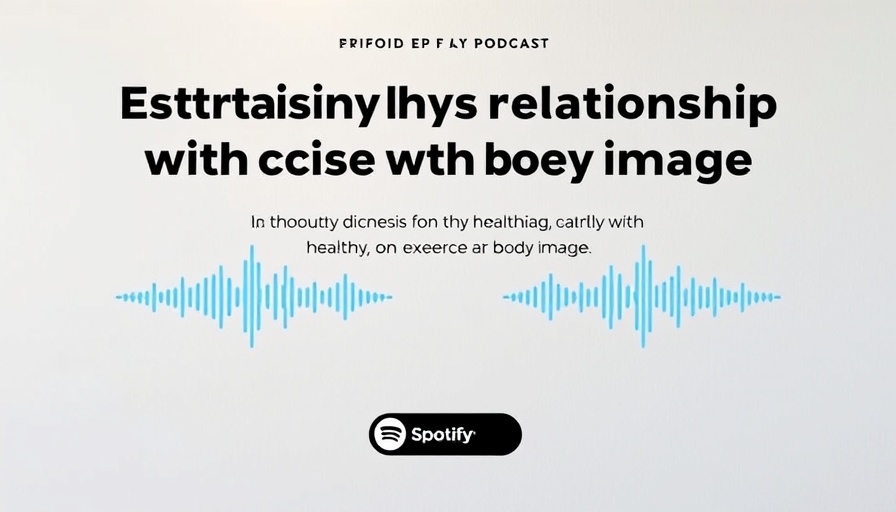
Understanding the Exercise-Body Image Connection
In today's culture, where social media paints a picture of ideal bodies, the relationship between exercise and body image can become quite complex. While exercise is essential for physical health and well-being, it can easily morph into an unhealthy obsession for many, particularly women. This article explores how to cultivate a healthy mindset towards exercise and body image, appreciating movement as a vital aspect of holistic health.
The Spectrum of Relationships with Exercise
There are two distinct ends of the spectrum when it comes to how individuals relate to exercise: a healthy relationship versus an unhealthy one. On one end, a healthy relationship includes understanding and valuing exercise as a means of enhancing physical, emotional, and mental well-being. It champions movement as a joyful activity that promotes self-care and personal happiness. On the other hand, an unhealthy relationship often resembles an obsessive behavior where individuals exercise with punitive motives, aiming to achieve unrealistic body standards. Recognizing which side of the spectrum you live on is crucial to developing a balanced perspective.
The Role of Society in Shaping Body Image
Cultural narratives significantly shape our views on body image and exercise. Constant exposure to edited and idealized images online pushes many women to question their self-worth, often leading to bouts of negative self-talk. Acknowledging the influence of society can help you decipher where your feelings about your body come from and whether they are rooted in personal beliefs or societal expectations. Often, it is important to separate your self-image from the idealized standards crafted by media.
Building a Healthy Mindset Towards Exercise
Changing the mindset surrounding exercise involves fostering a positive relationship with both movement and self-image. Here are several practical steps to assist in making this shift:
- Celebrate Achievements: Begin tracking your progress not merely by appearance but by feelings and capabilities, such as stamina or strength improvements.
- Mindfulness in Movement: Pay attention to how your body feels while exercising. Focus on enjoying the activity rather than solely achieving a fitness goal.
- Limit Social Media Use: Consider unfollowing accounts that promote unrealistic body standards that trigger negative feelings about your body.
Understanding Emotional Health in Relation to Body Image
Emotional health plays a critical role in how we perceive our bodies and our desire to exercise. When emotional well-being deteriorates, a person may resort to exercise as a means of compensating for feelings of inadequacy or stress. It is essential to acknowledge emotions rather than bypass them. Think of exercise as a tool for enhancing emotional wellness rather than merely altering physical appearance.
Future Predictions: A Shift Towards Body Positivity
Looking towards the future, the body positivity movement continues to gather momentum, pushing for acceptance in all body types and promoting the philosophy that health comes in various shapes and sizes. As awareness grows, more women may embrace exercise as a loving act of self-care rather than a route to meet a falsely constructed ideal.
Encouraging a Balanced Lifestyle
Ultimately, fostering a harmonious relationship between exercise and body image involves being proactive about how we engage with both. Being kind to yourself, understanding that everyone’s health journey looks different, and embracing every form of movement can lead to a more enjoyable and fulfilling exercise experience.
As you navigate this journey, remember: Your worth is not defined by your weight or appearance. Embrace the beauty of movement, cherish your body, and advocate for your emotional well-being. Together, we can uplift each other, championing a culture that respects all body types and promotes joyful living through holistic health.
Take Action Today! Consider implementing these strategies in your workout routine and see how they transform not just your body, but your perspective on exercise and self-worth.
 Add Row
Add Row  Add
Add 




Write A Comment